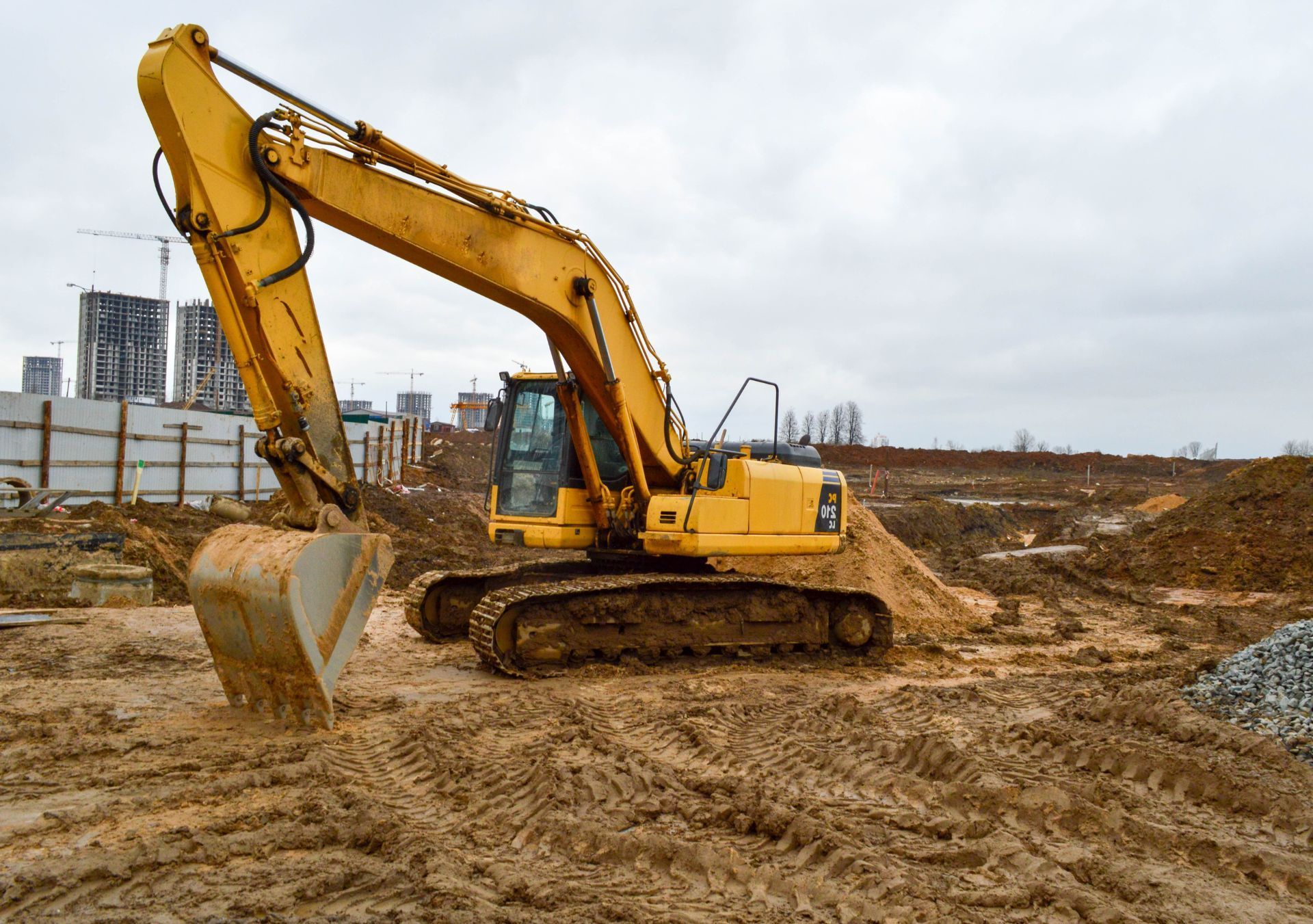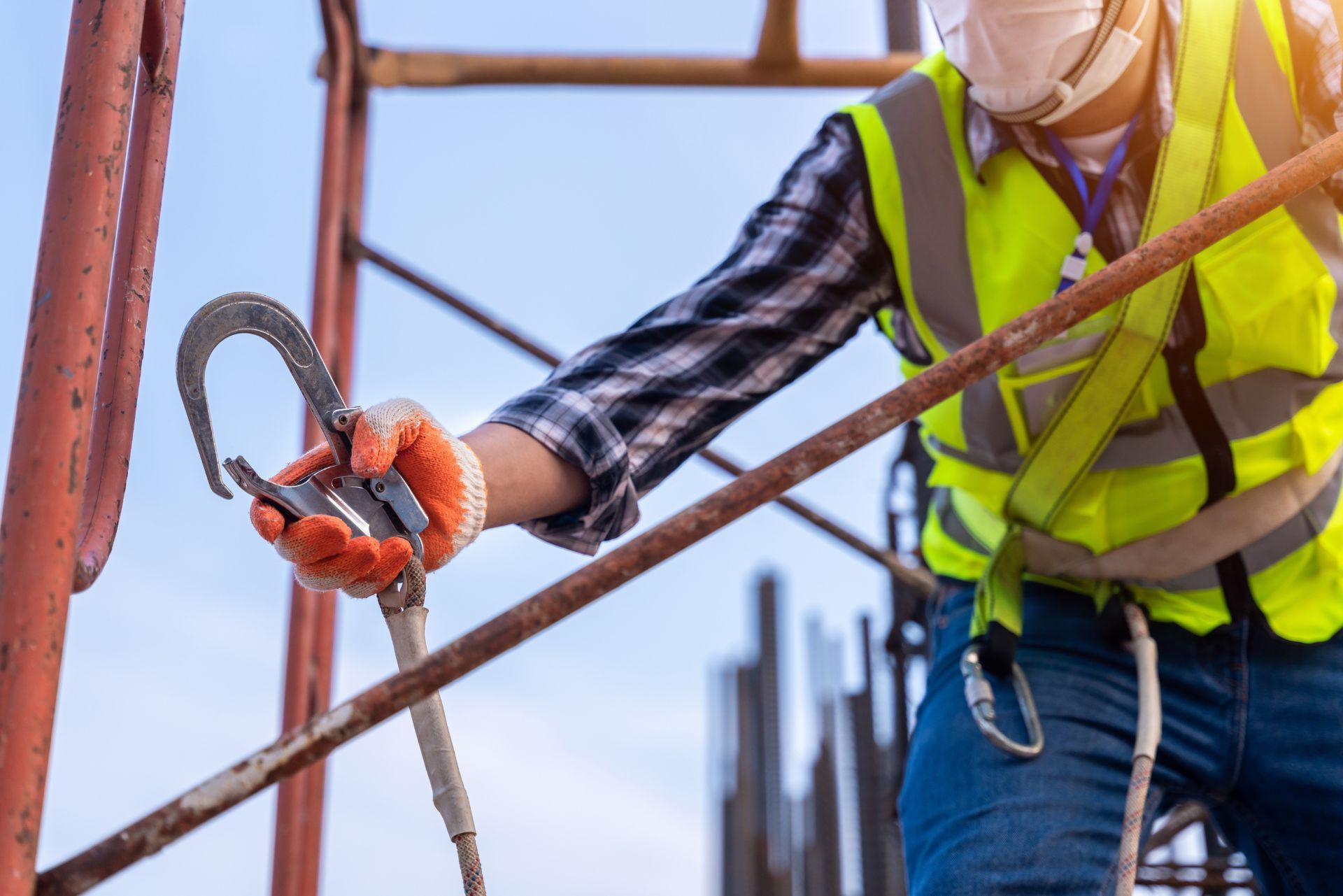
We're an independent insurance agency in Texas
Our experienced team offers services for both residential and commercial properties.With over 25 years of experience in the industry.
Contact Us
6600 Lyndon B Johnson Fwy Ste 220, Dallas, TX 75240, United States
(214) 253-0570
quotes@thephoenixinsurance.com
Working Hrs : 9.30am to 5.30pm
Texas Contractors Equipment Insurance

See How We're Different:
or Call Us: (214) 253-0570

Most Common Business Policies
Index
Understanding the Basics of Contractors Equipment Insurance
Key Features of Texas Contractors Equipment Insurance
The Process of Getting Contractors Equipment Insurance in Texas
Cost of Contractors Equipment Insurance in Texas
Claims Process for Contractors Equipment Insurance
Frequently Asked Questions About Contractors Equipment Insurance
Contact Us
Contractors in Texas work with a wide array of equipment, from heavy machinery to specialized tools. However, this equipment represents a significant financial investment and carries risks that can impact your business. To safeguard against potential liabilities and losses, understanding contractors equipment insurance is essential. This guide will cover the vital components of contractors equipment insurance in Texas, helping you make informed decisions for your business.
Understanding the Basics of Contractors Equipment Insurance
Contractors equipment insurance is designed to protect contractors from financial losses associated with damage or theft of their tools and equipment. This policy can cover various types of machinery and gear, including excavators, bulldozers, and hand tools.
At its core, contractors equipment insurance ensures that a contractor can replace or repair their equipment if it is lost or damaged due to unforeseen events. It is vital for contractors to understand the intricacies of their policies to ensure they are adequately protected. Additionally, many policies offer options for coverage during transportation, which is particularly important for contractors who frequently move their equipment between job sites.
What is Contractors Equipment Insurance?
Contractors equipment insurance is a specialized form of insurance that covers the tools, machinery, and equipment used by contractors in their operations. This insurance policy is essential for professionals in the construction, plumbing, electrical, and landscaping industries.
This type of insurance typically provides coverage against various risks, including theft, vandalism, and accidental damage. It can apply to equipment owned by the contractor as well as rented equipment, offering peace of mind that their investment is secure. Furthermore, some policies may also include coverage for loss of income due to equipment downtime, which can be a significant financial burden for contractors facing delays in their projects.
Why is Equipment Insurance Essential for Contractors?
Investing in equipment insurance is crucial for contractors due to several reasons. Firstly, the cost of large construction equipment can be astronomical. A loss due to theft or damage could severely impact a contractor’s financial stability and ability to complete ongoing projects.
Moreover, many clients require contractors to have insurance coverage before awarding contracts. Having a policy in place not only protects your assets but also enhances your credibility and competitiveness within the industry. It demonstrates a level of professionalism and responsibility that can set a contractor apart from others who may not prioritize such protections. Additionally, in an industry where delays can lead to penalties or loss of future contracts, having the right insurance can provide a safety net that allows contractors to focus on their work without the constant worry of potential financial setbacks.

Key Features of Texas Contractors Equipment Insurance
Understanding the key features of contractors equipment insurance is essential to ensure you choose the right policy and coverage for your business needs. Each policy may vary in terms of what is covered and the extent of coverage provided. This is particularly important in Texas, where the diverse landscape and varying weather conditions can pose unique risks to contractors and their equipment.
In Texas, contractors should carefully evaluate different insurance plans and see what aligns best with their operational risks. Factors such as the type of projects undertaken, the equipment used, and the geographical areas serviced can all influence the necessary coverage. Additionally, contractors should consider the frequency of equipment use and the potential for environmental hazards, such as flooding or storms, which can further impact their insurance needs.
Coverage Options and Limitations
Coverage options under contractors equipment insurance can include property damage, theft, and even the costs associated with business interruption caused by a loss. Policies might also cover specialized equipment tailored to specific trades, ensuring a comprehensive safety net. For instance, contractors in the construction industry may require coverage for heavy machinery, while those in landscaping may need protection for smaller tools and vehicles.
However, it is crucial to be aware of limitations within these policies. For example, certain types of equipment might have specific usage limitations or restrictions on locations where the coverage applies. Contractors should review these options to avoid gaps in their coverage. Furthermore, some policies may include a deductible that must be met before coverage kicks in, which can affect the overall cost-effectiveness of the insurance plan.
Policy Exclusions to Be Aware Of
Every insurance policy has exclusions that define what is not covered under the plan. Common exclusions in contractors equipment insurance can include damages due to improper maintenance or wear and tear. Understanding these exclusions is vital, as they can significantly impact your coverage. For example, if a piece of equipment fails due to lack of maintenance, the contractor may find themselves responsible for the repair costs, which can be substantial.
Additionally, some policies may not cover equipment used for non-business purposes, so it's essential for contractors to clarify these aspects with their insurance provider to avoid any surprises. This is particularly relevant for contractors who may occasionally use their equipment for personal projects or lend it to friends or family. It is advisable to maintain clear records of equipment use to ensure compliance with the terms of the insurance policy, as this can help prevent disputes during the claims process.
The Process of Getting Contractors Equipment Insurance in Texas
Obtaining contractors equipment insurance in Texas can initially seem overwhelming, but understanding the steps can simplify the process. From assessing your equipment needs to choosing the right provider, each phase is significant. This type of insurance is crucial for protecting your investment in tools and machinery, which are often essential for the successful completion of projects. Without proper coverage, contractors risk facing substantial financial losses due to theft, damage, or accidents involving their equipment.
It is advisable for contractors to take the time to research and understand the insurance landscape before making a final decision. Familiarizing yourself with the various types of coverage available, such as inland marine insurance or equipment floater policies, can provide valuable insights into what might best suit your business. Additionally, understanding the nuances of your specific industry can help you identify potential risks and tailor your insurance needs accordingly.
Eligibility Criteria for Contractors
The eligibility criteria for contractors seeking equipment insurance typically includes having a valid business license, maintaining good operational standards, and implementing safety protocols. Insurance providers may also assess the contractor's claims history and overall financial stability. A strong safety record and proactive risk management practices can not only enhance your eligibility but may also lead to lower premiums. Insurers often reward contractors who demonstrate a commitment to safety and risk mitigation with discounts and better coverage options.
Different insurers may have unique criteria, so contractors should consult with multiple insurance companies to understand their specific requirements. It's also beneficial to gather feedback from fellow contractors about their experiences with different insurers. This peer insight can provide a clearer picture of which companies are reliable and responsive, ultimately aiding in your decision-making process.
Steps to Apply for Equipment Insurance
- Assess Your Equipment: Make a comprehensive list of all your tools and machinery, noting their values and usage. This inventory will serve as a foundation for your insurance application and help ensure you have adequate coverage for all your assets.
- Research Insurers: Look for insurance providers that specialize in contractors equipment insurance to ensure they understand the unique needs of your operation. Consider checking reviews and ratings to gauge customer satisfaction and service quality.
- Request Quotes: Contact multiple insurers for quotes. Make sure to provide details about your equipment and operational practices. Be transparent about your business activities, as this can influence the coverage options and pricing you receive.
- Review Policy Terms: Carefully analyze the coverage options, exclusions, and limitations provided in each quote. Pay attention to factors such as deductibles, replacement cost versus actual cash value, and any additional endorsements that may enhance your policy.
- Finalize Your Decision: Select the policy that best meets your needs after thorough evaluation and discussions with the insurers. It may also be wise to consult with an insurance broker who specializes in contractor insurance, as they can offer expert advice and help you navigate complex policy details.

Cost of Contractors Equipment Insurance in Texas
The cost of contractors equipment insurance can vary widely based on several factors including the type and value of the equipment, the contractor’s claims history, and the specific coverage options chosen. Understanding what influences these costs can help contractors budget effectively. Additionally, market trends and regional economic conditions can also play a significant role in determining insurance rates, making it essential for contractors to stay informed about the broader landscape of the construction industry.
Factors Influencing the Insurance Premium
Policy premiums are determined by various factors:
- The total value of the equipment insured.
- The types of equipment and their associated risks.
- Location of operations, as theft and damage risks vary by region.
- The contractor’s experience and safety record.
Evaluating these factors can help contractors identify areas where they might reduce potential costs without sacrificing coverage quality. For instance, contractors operating in urban areas may face higher premiums due to increased theft rates, while those in rural settings might benefit from lower rates. Furthermore, investing in advanced security measures, such as GPS tracking devices for equipment, can not only deter theft but also potentially lower insurance costs over time.
Tips to Lower Your Insurance Costs
Contractors looking to lower their insurance premiums can consider several strategies:
- Bundling insurance policies to receive multi-policy discounts.
- Implementing rigorous safety training to reduce the risk of accidents and claims.
- Regularly reviewing equipment values to ensure they are accurately insured without excessive coverage.
- Shopping around and comparing quotes from different providers annually.
Each of these strategies can help you secure better rates while ensuring that your equipment is still adequately protected. Additionally, maintaining a proactive relationship with your insurance agent can provide insights into emerging discounts and coverage options tailored to your specific business needs. Engaging in regular risk assessments and keeping meticulous records of equipment usage and maintenance can also demonstrate to insurers that you are a responsible contractor, potentially leading to further reductions in premium costs.
Claims Process for Contractors Equipment Insurance
The claims process is a critical component of any insurance policy. Knowing how to navigate this process efficiently can save time and reduce stress during a challenging period. It is essential for contractors to familiarize themselves with their policy details and the claims process to ensure they are adequately protected and prepared for any unforeseen circumstances.
Understanding what information is needed and what steps to follow can greatly simplify filing a claim. Contractors should also be aware of the specific coverage limits and exclusions in their policy, as this knowledge can influence the claims process and the outcome of their claim.
When and How to File a Claim
Filing a claim should be done promptly after an incident occurs. Depending on the policy, most insurers require immediate notification of theft or damage. The standard steps typically include:
- Notify your insurance provider as soon as possible.
- Document the damage or theft with photographs and detailed descriptions.
- Provide receipts or proof of value for the equipment.
- Complete any required claim forms provided by the insurer.
In addition to these steps, it is advisable to keep a detailed log of all communications with your insurer, including dates, times, and the names of representatives you speak with. This documentation can be invaluable if there are any disputes or delays in processing your claim. Furthermore, contractors should consider reaching out to their insurance agent for guidance throughout the process, as they can provide valuable insights and support.
What to Expect During the Claims Process
Once a claim is filed, the insurer will investigate the claim. This process often includes assessing the damage, interviewing witnesses, and reviewing the details surrounding the incident. While each insurer has specific timelines, generally, you can expect:
- A claims adjuster assigned to your case.
- Communication regarding any additional information needed.
- A determination of coverage and next steps for reimbursement or repair.
During the investigation, it is crucial for contractors to remain responsive and provide any requested information promptly. Delays in communication can prolong the claims process and potentially affect the outcome. Additionally, contractors should be prepared for the possibility of a site visit from the claims adjuster, who will assess the damage firsthand. This visit is an opportunity to discuss the incident in detail and clarify any uncertainties regarding the claim.
Understanding this process ahead of time can help contractors remain organized and prepared should an incident occur. By being proactive and informed, contractors can navigate the claims process with greater confidence, ensuring that they can quickly return to their projects and minimize disruptions to their business operations.
Frequently Asked Questions About Contractors Equipment Insurance
In the world of contractors equipment insurance, several commonly asked questions arise. Addressing these questions can assist contractors in making informed decisions about their coverage.
Can I Insure Rented or Leased Equipment?
Yes, many insurance policies allow coverage for rented or leased equipment. However, it is essential to check the policy details, as some providers may offer limited coverage for rented items. Contractors should communicate with their insurer to clarify these parameters and ensure proper protection.
Does My Policy Cover Equipment in Transit?
This issue often arises, as equipment transit poses unique risks. Most contractors equipment insurance policies can cover equipment while in transit, but it is crucial to confirm this coverage with your provider, including any conditions or limitations. Be sure to understand how your policy handles transportation risks to avoid unexpected gaps in coverage.
Final Thoughts on Texas Contractors Equipment Insurance
Understanding contractors equipment insurance in Texas is essential for protecting your business assets. Taking the time to assess your needs, understand the coverage options, and navigate the claims process can ensure that your operation remains secure against unforeseen circumstances.
Importance of Regularly Reviewing Your Coverage
As a contractor, regularly reviewing your insurance coverage is vital to stay aligned with your evolving business needs. Changes in equipment, scope of projects, or increases in value can all influence your insurance requirements. Keeping your policy updated ensures that you avoid underinsurance, which can lead to financial challenges during a claim.
Choosing the Right Insurance Provider in Texas
Finally, selecting the right insurance provider is crucial for successful coverage. Look for a provider with a solid reputation, comprehensive policy options, and responsive customer service. Speaking with other contractors can provide insights into reliable insurers, helping you find the right partner for your equipment insurance needs.
In conclusion, equipping yourself with the right knowledge about contractors equipment insurance will help you safeguard your investments and enable your business to thrive in Texas's dynamic contracting environment.
